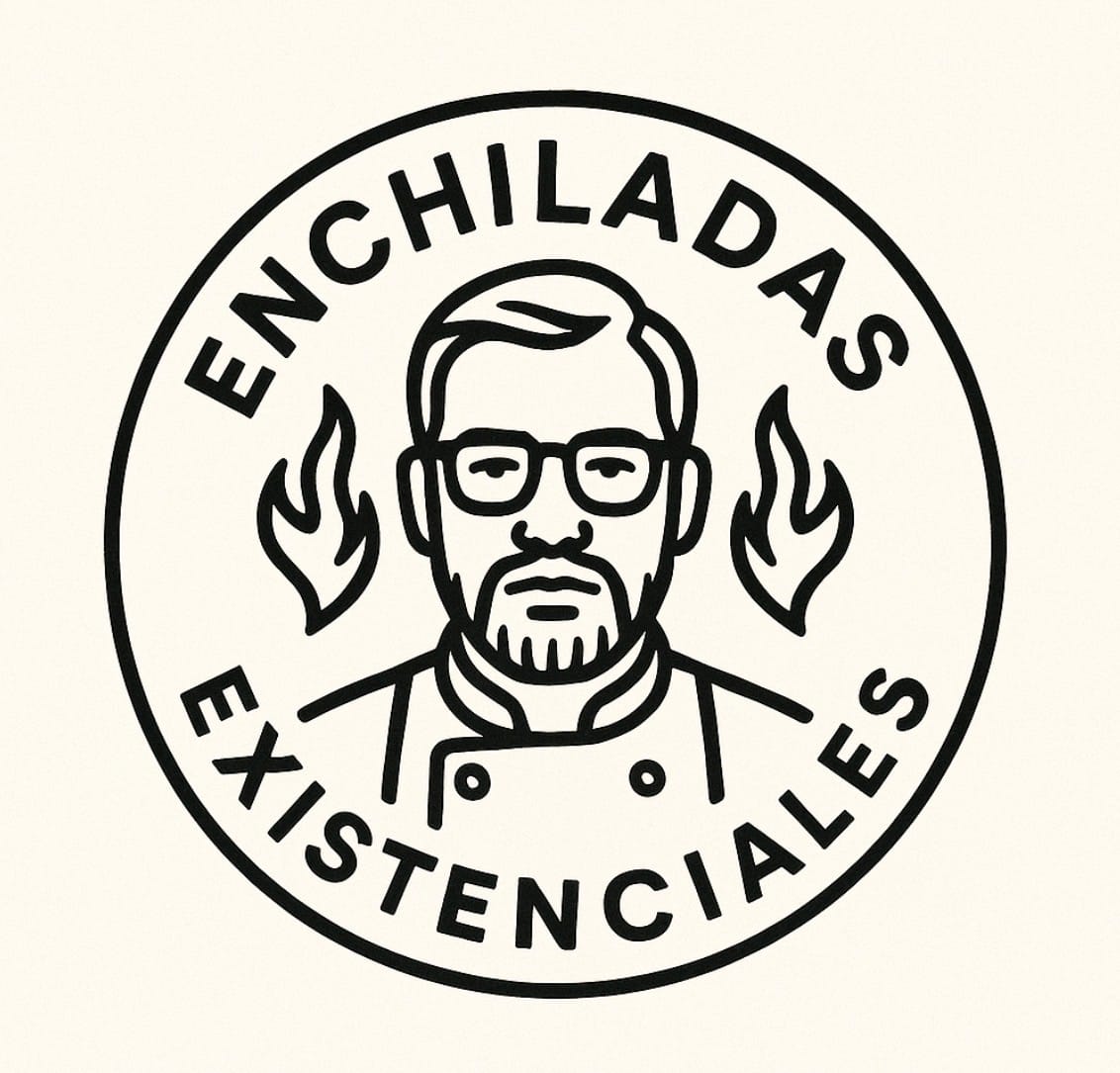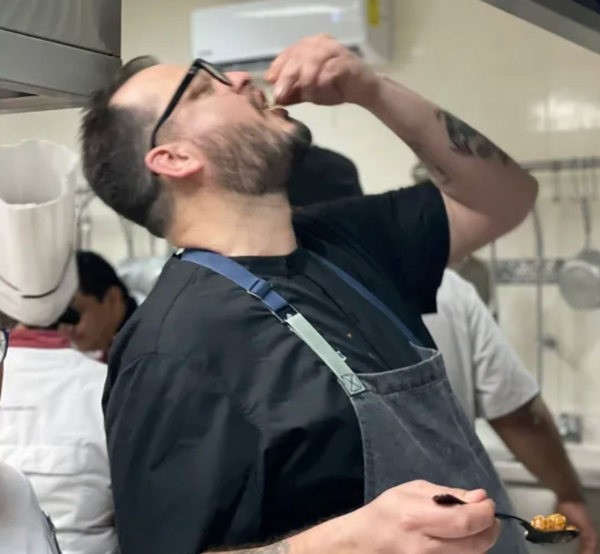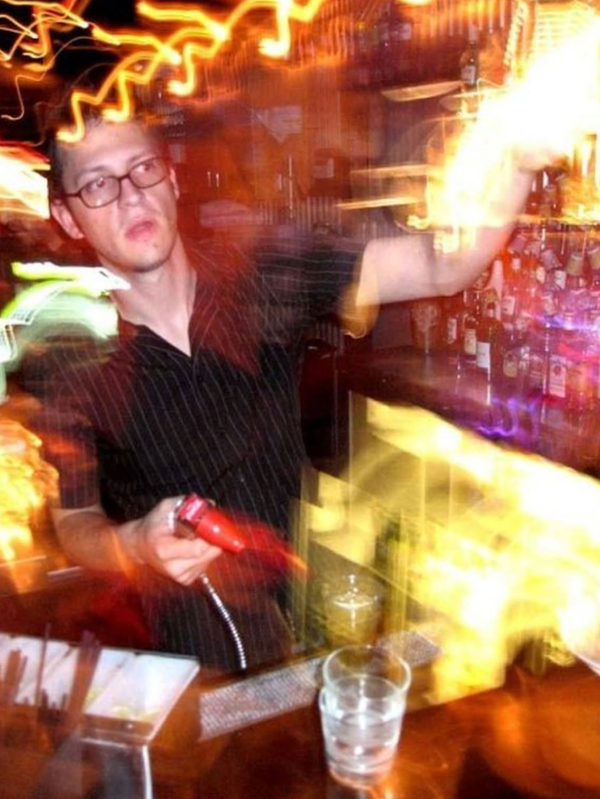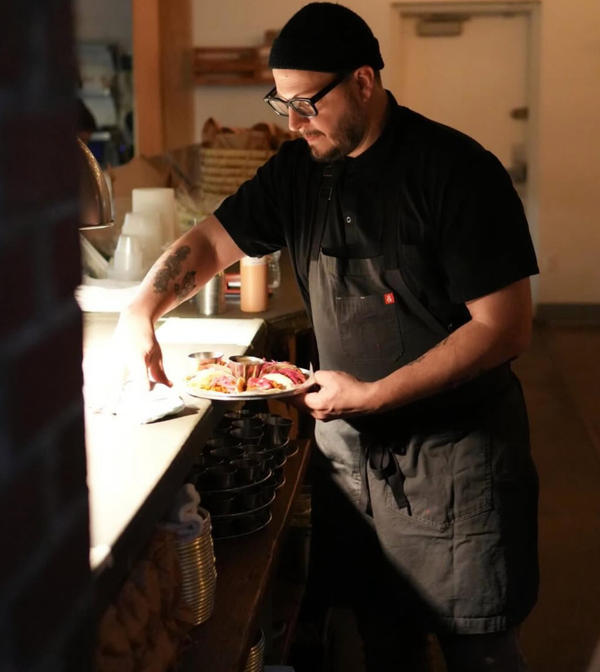Feeding Change

When I opened Amparo Fondita, I didn’t want to build a restaurant, I wanted to build a movement. A living, breathing space that used food to shift power, restore dignity, and reframe what it means to be a Latin American person working in hospitality. Amparo means shelter, but not the kind that shields you from work, the kind that redefines what work can mean. I wanted a place where the people who have carried this industry on their backs for decades: dishwashers, prep cooks, porters, mothers, fathers could see their reflection in something beautiful.
The mission sounds noble, but the reality is messy. Change is hard. And changing people, especially those who’ve been trained their whole lives to survive, not to dream, is a fight that happens quietly, every single day.
As a Mexican immigrant myself, I see this fight from both sides. I know the instinct to stay small, to not rock the boat, to believe that silence equals safety. I grew up with that same voice in my head — keep your head down, work hard, don’t draw attention. The first time I walked into a fine-dining kitchen, I carried that weight. It took me years to unlearn it, to speak up, to own my ideas, to believe I deserved to be there. So when I see that same hesitation in my team; that mix of pride, fear, and self-doubt, I recognize it instantly. It’s me, twenty years ago, standing on the other side of the line. I would be lying if I said it didn’t still
I work with Latin American immigrant adults, and I see it constantly: the instinct to stay invisible. The silence that comes from years of being told, haz tu trabajo y ya; just do your job and that’s it. For so many of them, safety has always meant compliance. Creativity is a luxury, curiosity a liability. When I ask them what they think of a dish, they hesitate. When I tell them they can make a special, they look at me like I’m setting a trap. They’ve been conditioned to see hierarchy as protection. And undoing that conditioning requires patience, empathy, and a kind of daily rebellion.
That’s the heart of Amparo’s mission,not just cooking food, but cooking confidence. Not just serving guests, but serving transformation. The real work isn’t plating the dish; it’s helping someone believe they can own it.
And that’s where Extreme Ownership comes in.
When I first read Jocko Willink’s book, it didn’t feel motivational. It felt like a mirror. The idea that everything in your world is your responsibility. Not just what you do, but what you tolerate, what you accept, what you ignore. It has reshaped how I lead. It stripped away excuses. If communication breaks down, it’s on me. If a station fails, it’s on me. If the culture slips, if morale drops, if a cook quits, it’s on me. Not because I caused it all, but because I’m responsible for equipping people by giving them tools to succeed, and when it fails, it usually means I’ve missed a step somewhere and am now responsible for fixing it.
That level of accountability changes how you move. You stop blaming the system and start becoming the system. You learn to lead with clarity instead of chaos. But more importantly, you learn that true leadership isn’t control, it’s example.
At Amparo, I try to teach my team that ownership isn’t punishment; it’s power. You’re not just a cog, you’re a cornerstone. When you own your mistakes, you also own your victories. You start to see that everything you touch, every bean you wash, every sauce you taste is a reflection of who you are. But ownership takes time. You can teach someone knife skills in an afternoon; teaching them to believe in their own agency might take years.
And here’s the truth I’ve had to face: it took years for me too. As a Latin American immigrant chef, I had to learn to stop seeing authority as dominance and start seeing it as responsibility. To stop confusing perfection with value. To lead differently than I was led. Without fear, without humiliation, without the constant need to prove I belonged. That shift didn’t happen overnight. So when I see my team still fighting those old ghosts, I try to meet them with patience, because I know the battle isn’t just external. It’s inside our hearts and minds.
The challenge with immigrant workers is that ownership has never been part of their vocabulary. For many, the family culture was rooted in silence: don’t question, don’t ask, don’t speak. It’s not laziness; it’s trauma. And it doesn’t go away just because you say “my door’s always open.” You have to prove it. You have to show, day after day, that speaking up won’t get them punished. That failure won’t get them fired. That their thoughts matter even when they don’t have the words to express them perfectly.
And it’s exhausting work because culture doesn’t change by decree. It changes by example, repetition, and trust.
I can teach people skills like how to cook, how to clean, how to manage, but adaptation is different. Some people bend with pressure. Others break. Adaptation is its own art form, and not everyone has it in equal measure. In this industry, without it, you sink. The kitchen moves too fast, the world turns too hard. But for those who find it, that resilience, that flexibility, it’s life changing.
I’ve seen it firsthand. Like one of our kitchen leads, who came to us after a decade of being told to stay quiet and keep their head down. When I asked them to lead a station, they said no. They said they weren’t a leader, that they “just cook.” But I pushed. I explained that leadership isn’t a title, it’s a choice. Now they run a lot of the day to day operations of the restaurant on their own.
Those small revolutions are what keep me going. Seeing someone go from invisible to indispensable. Watching a dishwasher become a prep cook, a prep cook become a lead, a lead become a voice. Every time it happens, it proves that empowerment isn’t something you give, it’s something you uncover. People already have it; they just need a space that allows them to use it.
Still, the work is slow, humbling, and full of setbacks. Old habits die hard. Machismo, fear, exhaustion; they all find their way back into the room. You can’t fix everything. Some people resist the change. Some leave. Some don’t believe it’s real. And that’s okay. Because change doesn’t have to be universal to be meaningful. It just has to start somewhere.
The truth is, every success story at Amparo, every moment of growth, has cost something. My patience, my ego, my comfort. Sometimes, my sanity. But when I see someone who used to flinch at correction now mentoring a new hire with kindness, when I hear laughter during prep instead of silence, when someone calls the restaurant ours instead of yours, that’s the reward. That’s the proof that the system is working.
In the end, ownership is liberation. It’s the belief that you are responsible for your own life and capable of changing it.
As a Mexican immigrant, I carry that truth in my bones. I know how hard it is to unlearn survival mode. To stop waiting for permission and start giving it to yourself. Watching my team now, I see shades of my own journey: the frustration, the resistance, the fear of being seen. And it’s tough standing on the other side of that process, knowing exactly how hard it is, knowing how long it takes. But that’s what makes it worth it. Because every time one of them breaks through that wall, I know I’m watching something sacred.
That’s what Amparo is: not a restaurant, not a brand, but a mirror. A place where people can finally see themselves clearly and maybe, for the first time, like what they see.
La Ofrenda
At Amparo, every day starts for me the same way: Hands. Heart. Head.
- Hands: Do the work. Chop the onions, clean the flattop, coach the team, and taste the sauce. Ground yourself in skill.
- Heart: Remember why you’re here. Who you’re feeding, what you represent. This work is bigger than us.
- Head: Reflect. Ask what you learned today. What went wrong, what went right, and what you’ll do differently tomorrow.
It’s a ritual, not a rule. A moment to reconnect before the noise begins. To remind ourselves that perfection isn’t the goal, presence is.
That’s what Amparo Fondita stands for, not charity, not rescue, not reform. But rebirth. A place where we teach ownership, not obedience. Where accountability is love, and empowerment isn’t given, it’s reclaimed.
Because food, at its best, doesn’t just fill you. It frees you, and in that freedom, we find the kind of change that lasts.




